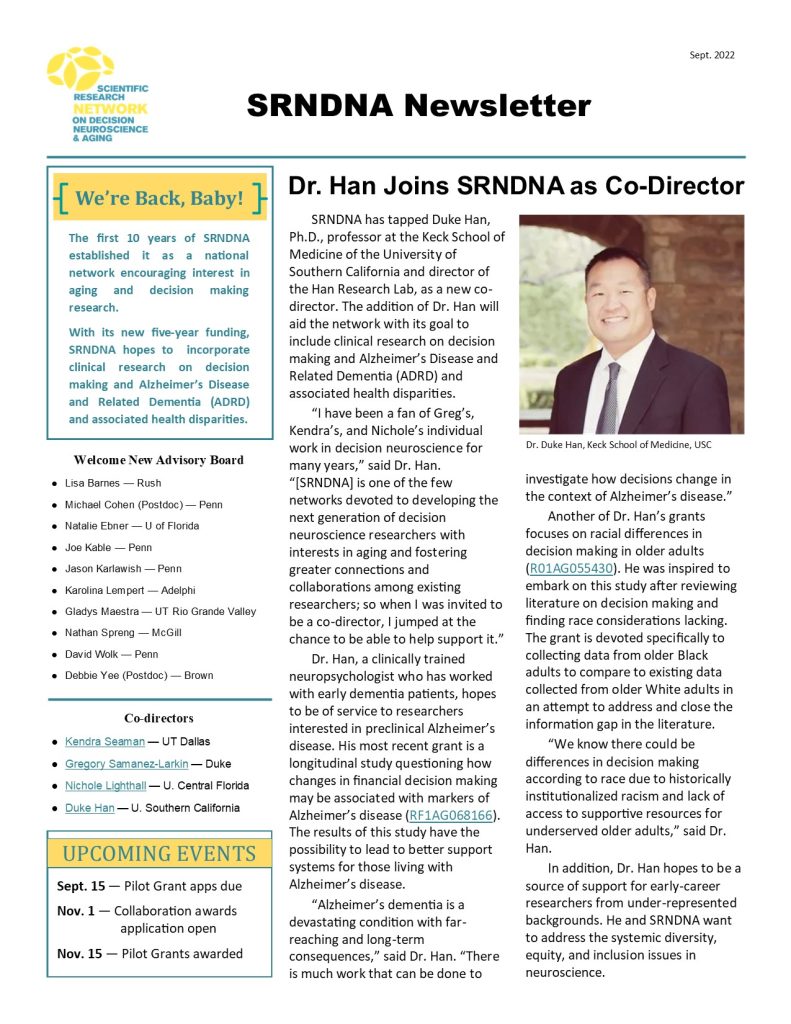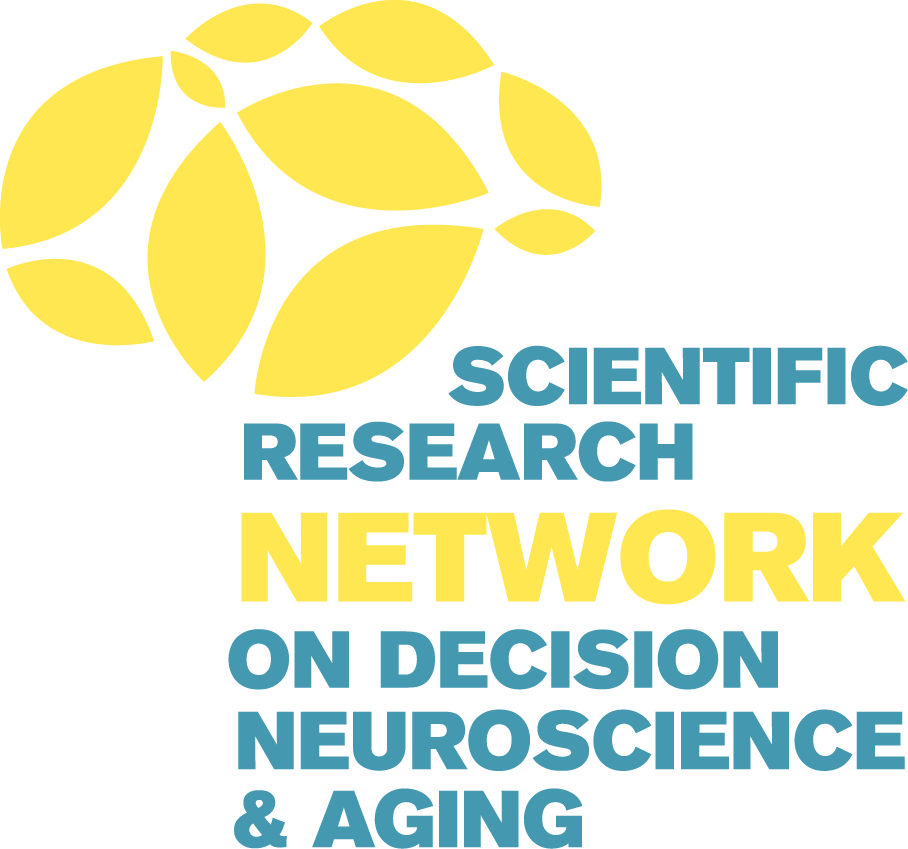Dr. Han Joins SRNDNA as Co-Director
By Sera Gonzalez
September 1, 2022
SRNDNA has tapped Duke Han, Ph.D., professor at the Keck School of Medicine of the University of Southern California and director of the Han Research Lab, as a new co-director. The addition of Dr. Han will aid the network with its goal to include clinical research on decision making and Alzheimer’s Disease and Related Dementia (ADRD) and associated health disparities.

“I have been a fan of Greg’s, Kendra’s, and Nichole’s individual work in decision neuroscience for many years,” said Dr. Han. “[SRNDNA] is one of the few networks devoted to developing the next generation of decision neuroscience researchers with interests in aging and fostering greater connections and collaborations among existing researchers; so when I was invited to be a co-director, I jumped at the chance to be able to help support it.”
Dr. Han, a clinically trained neuropsychologist who has worked with early dementia patients, hopes to be of service to researchers interested in preclinical Alzheimer’s disease. His most recent grant is a longitudinal study questioning how changes in financial decision making may be associated with markers of Alzheimer’s disease (RF1AG068166). The results of this study have the possibility to lead to better support systems for those living with Alzheimer’s disease.
“Alzheimer’s dementia is a devastating condition with far-reaching and long-term consequences,” said Dr. Han. “There is much work that can be done to investigate how decisions change in the context of Alzheimer’s disease.”
Another of Dr. Han’s grants focuses on racial differences in decision making in older adults (R01AG055430). He was inspired to embark on this study after reviewing literature on decision making and finding race considerations lacking. The grant is devoted specifically to collecting data from older Black adults to compare to existing data collected from older White adults in an attempt to address and close the information gap in the literature.
“We know there could be differences in decision making according to race due to historically institutionalized racism and lack of access to supportive resources for underserved older adults,” said Dr. Han.
In addition, Dr. Han hopes to be a source of support for early-career researchers from under-represented backgrounds. He and SRNDNA want to address the systemic diversity, equity, and inclusion issues in neuroscience.

View the Sept. 2022 Newsletter here

You must be logged in to post a comment.